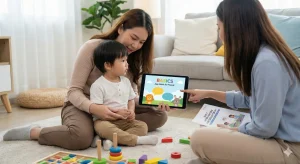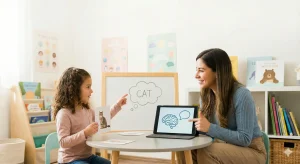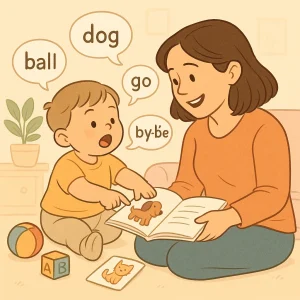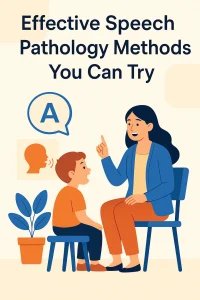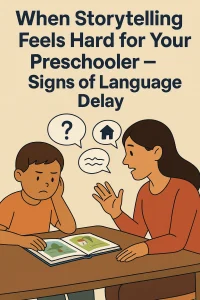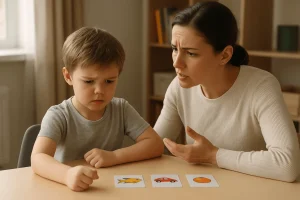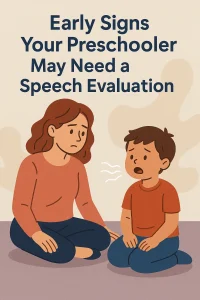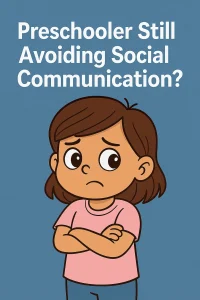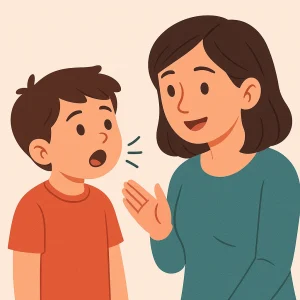Top 8 Engaging Articulation Games for Effective Speech Therapy
By Wellness Hub
Last Updated: December 14, 2024
Welcome to the world of articulation games! These engaging tools are more than just play; they’re crucial for children facing speech delays, turning daunting drills into fun, effective learning sessions. Articulation games not only improve speech clarity but also boost confidence and enhance social interactions, making them a key component of supportive speech therapy. Whether you’re a parent or a therapist, incorporating these games can lead to noticeable progress and make each session something children eagerly anticipate. Let’s explore some top games that promise to make speech therapy both enjoyable and successful.
What Are Articulation Games?
Articulation games are fun, engaging tools used in speech therapy to help improve how clearly someone speaks. These games involve activities that encourage the correct pronunciation of sounds, making them essential for developing clear speech.
These games transform speech practice into a lively and enjoyable experience, helping to keep children motivated and engaged. They come in various forms, such as digital apps, board games, and card games, each designed to target specific speech sounds.
Playing these games repeatedly helps children learn how to pronounce sounds correctly, which improves their overall speech clarity. This practice is done in a fun way, making it less intimidating and more effective.
Also read: Can Parenting Styles Lead to Speech Delays in Children?
Why Articulation Games Are Essential
Articulation games are not just about making speech therapy fun; they play a crucial role in developing key skills that are essential throughout life. These interactive games greatly impact communication abilities and self-confidence, helping children express themselves more clearly and effectively.
1. Improving Communication Skills
Through engaging articulation games, children practice making sounds, forming words, and constructing sentences in a supportive, enjoyable environment. This frequent, playful practice is vital for mastering the articulation of sounds, which in turn enhances their ability to communicate clearly. As children notice their improved ability to pronounce words correctly, their confidence in speaking up in class, at home, or with friends increases significantly.
2. Boosting Confidence
One of the most noticeable impacts of articulation games is the boost in self-esteem that children experience. When kids see progress in how well they can speak and be understood by others, it empowers them. This newfound confidence can lead to more active participation in conversations and social activities, further encouraging speech development.
Also read: Gamify Speech Therapy with Tele-BASICS Today
3. Contributing to Cognitive Development
Articulation games often require thinking, problem-solving, and memory skills. As children learn to associate sounds with specific actions or pictures in the games, they also enhance their cognitive abilities. These skills are crucial not only in language development but also in academic performance across all subjects.
4. Enhancing Social Skills
Playing games typically involves interaction with others, which is a fantastic opportunity for social skills development. Articulation games often require taking turns, listening actively, and cooperating with play partners, all of which are important social skills. For children with speech delays, mastering these interactive skills can significantly improve their peer relationships and overall social experiences.
The Top 8 Articulation Games
Articulation games are a cornerstone of effective speech therapy, offering creative ways to enhance speech clarity while keeping the experience light and enjoyable. Here are eight of the best games that parents and therapists can use to help children improve their articulation skills.
Read more: Fun Phonics: Boost Kids’ Articulation Skills with Puppets and Toys
1. Articulation Scavenger Hunt
Description:
Take speech therapy outdoors with an Articulation Scavenger Hunt. Create a list of items that feature specific sounds your child needs to practice. As you both walk around looking for these items, encourage your child to say the word as they find each one.
Benefits:
This game makes excellent use of environmental sounds and words, helping children connect phonetic sounds with real-world objects. It’s a fun way to practice articulation without the confines of a traditional indoor setting.
2. Cootie Catchers/Fortune Tellers
Description:
Cootie Catchers, or Fortune Tellers, are folded paper tools used to play a fun prediction game. Write different words or sounds on the inside flaps to practice phonics as your child interacts with them.
Benefits:
This game turns phonics practice into a lively, interactive experience. Kids love the suspense of seeing which hidden word they will be asked to articulate, keeping them engaged and eager to participate.
3. Mouse and Cheese Game
Description:
Set up a board with a path from a mouse to a piece of cheese. Write words along the path that contain the target articulation sounds. As your child moves the mouse toward the cheese, they must articulate each word correctly to advance.
Benefits:
This game combines strategic thinking with articulation practice. It requires careful consideration of word sounds and promotes precision in speech as children aim to help their mouse reach the cheese.
4. Story Time
Description:
Incorporate target sounds into a storytelling session. Prepare a story in advance or create one together with your child, emphasizing the articulation sounds they are working on. Ask your child to tell the story, focusing on the correct pronunciation of the targeted sounds.
Benefits:
Story Time enhances narrative skills and articulation through repetition. It also boosts imagination and provides a rich, context-based practice that helps children apply their articulation skills in a storytelling format.
5. Pizza on the Way
Description:
Transform your home into a mini-town where your child is a pizza delivery person. Use toys or handmade signs to set up various locations around the room where pizzas need to be delivered, using street names that contain target sounds.
Benefits:
This immersive role-playing game encourages children to use target sounds while engaging in a fun scenario. It’s a playful way to practice speech as children navigate their delivery route.
6. Catch the Ball
Description:
Use a beach ball with different target words written on each colored segment. Toss the ball to your child, and whatever word their right thumb touches when they catch it, they must say aloud.
Benefits:
Catch the Ball is excellent for promoting both articulation and motor skills. It adds a physical element to speech practice, helping to burn off extra energy while focusing on pronunciation.
7. Colorful Flash Cards
Description:
Create or purchase sets of colorful flash cards that emphasize specific sounds. Use these cards to play various games, or simply go through them with your child, asking them to pronounce each word.
Benefits:
Flash cards are fantastic visual aids that enhance memory and pronunciation skills. They provide a clear and focused way for children to practice articulation, with the versatility to be used in many different playful contexts.
8. Simon Says
Description:
Adapt Simon Says to focus on articulation. For example, “Simon says, say ‘silly snake’ five times fast.” This game can be tailored to any sound your child needs to work on.
Benefits:
Simon Says is great for groups of children, enhancing listening and speaking skills. It encourages attentive listening and quick, correct articulation, making it a lively way to practice speech sounds.
Overview of Articulation Games
| Game Name | Description | Primary Skill Enhanced |
|---|---|---|
| Scavenger Hunt | Explore outdoors and practice target sounds. | Communication |
| Cootie Catchers | Use paper tools for fun phonics practice. | Cognitive Development |
| Mouse and Cheese | Navigate a maze and articulate words. | Strategic Thinking |
| Story Time | Incorporate sounds into storytelling. | Narrative Skills |
| Pizza on the Way | Deliver pizza in a make-believe town. | Role-playing |
| Catch the Ball | Articulate words written on a beach ball. | Motor Skills |
| Colorful Flash Cards | Use visual cards to reinforce sounds. | Memory and Pronunciation |
| Simon Says | Follow commands and articulate clearly. | Listening and Speaking |
Conclusion
Articulation games are more than just fun—they’re key tools in speech therapy that help kids speak clearer and boost their confidence. These games make learning exciting and are a big part of successful speech development. Ready to help your child talk better and have fun at the same time? Check out Wellness Hub for great resources and support. Whether you’re a parent or a therapist, you’ll find everything you need to make speech therapy a success. Start exploring today and see the difference in your child’s communication skills!
Frequently Asked Questions:
1. What are articulation games?
Articulation games are fun activities used in speech therapy to help children practice and improve how they make sounds, enhancing their ability to speak clearly.
2. How do articulation games help children?
These games make practicing speech sounds engaging and interactive, which can improve a child’s pronunciation skills and boost their confidence in speaking.
3. Can articulation games be played at home?
Yes, many articulation games are designed for home use, allowing parents to support their child’s speech therapy in a familiar and comfortable environment.
4. What are some simple articulation games I can try with my child?
Games like ‘Simon Says’, ‘Cootie Catchers’, and ‘Catch the Ball’ are great for home play and effective in practicing specific speech sounds.
5. How often should my child play articulation games?
Regular practice is key, so incorporating articulation games into your child’s daily routine can lead to better speech outcomes.
6. Do articulation games replace professional speech therapy?
While articulation games are beneficial, they are best used as a supplement to professional speech therapy, not a replacement.
7. Where can I find resources for articulation games?
Check out resources and game ideas at MyWellnessHub or consult with your child’s speech therapist for recommendations tailored to your child’s needs.
8. Are there articulation games for different age groups?
Yes, there are games suitable for various age groups, ensuring that the game complexity is appropriate for the child’s developmental stage.
9. What if my child gets frustrated with articulation games?
If a game is causing frustration, take a break and try a simpler game or modify the game to better suit your child’s abilities.
10. Can articulation games improve my child’s school performance?
Yes, improving articulation can help enhance your child’s communication skills, leading to better participation and performance in school.
About the Author:
Rajini Darugupally
M.Sc., Speech-Language Pathologist (9+ years of experience)
Rajini is a passionate and dedicated Speech-Language Pathologist with over 9+ years of experience, specializing in both developmental speech and language disorders in children and rehabilitation in adults. Currently, at Wellness Hub, she thrives in a team environment that values innovation, compassion, and achieving results for their clients.
Book your Free Consultation Today
Parent/Caregiver Info:
Client’s Details:
* Error Message
